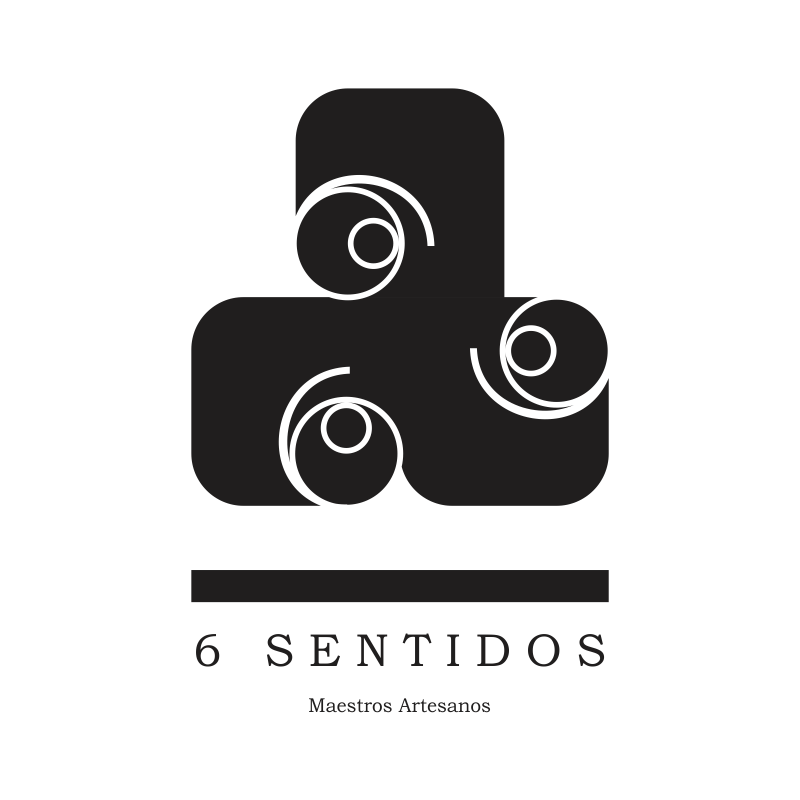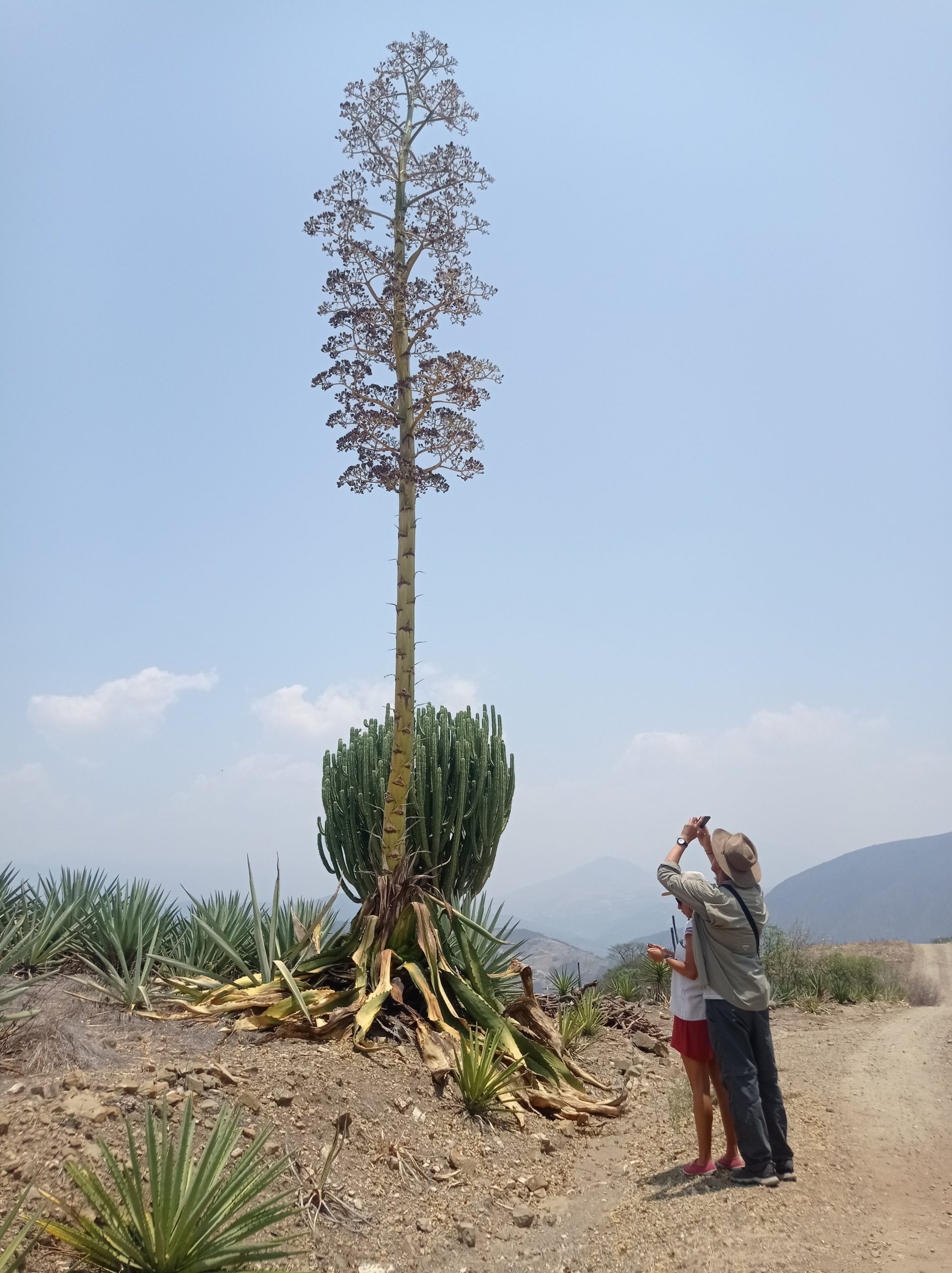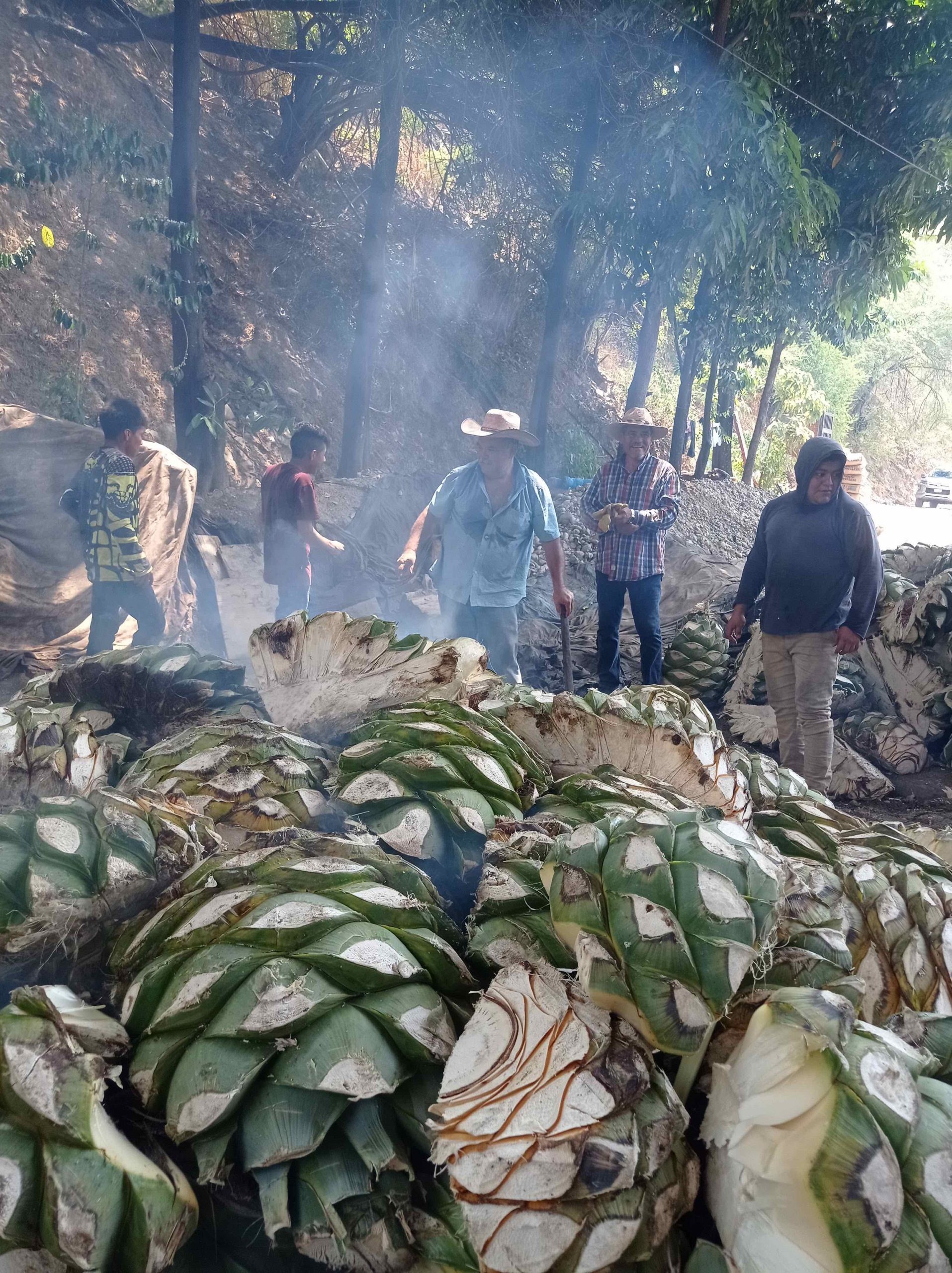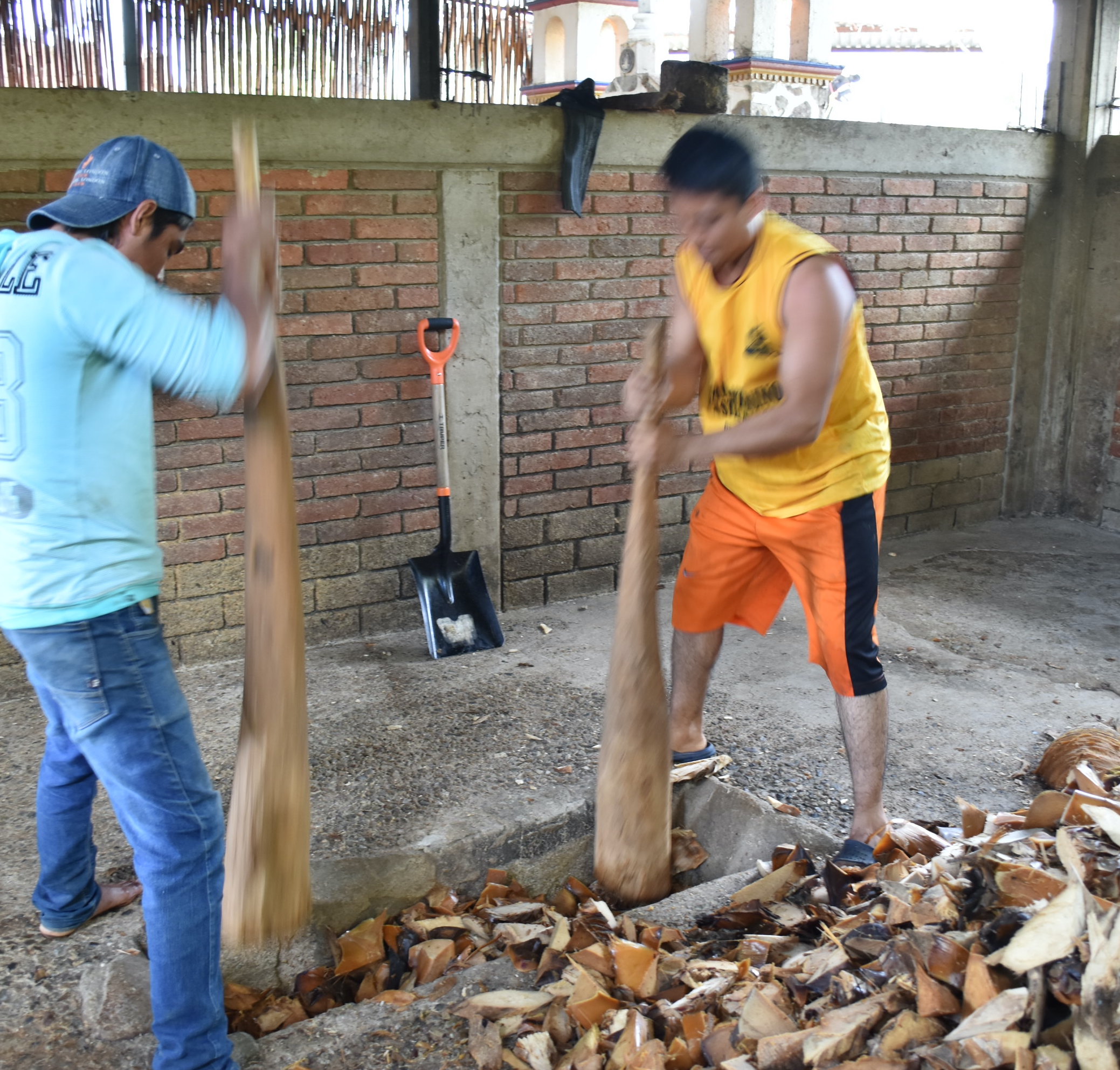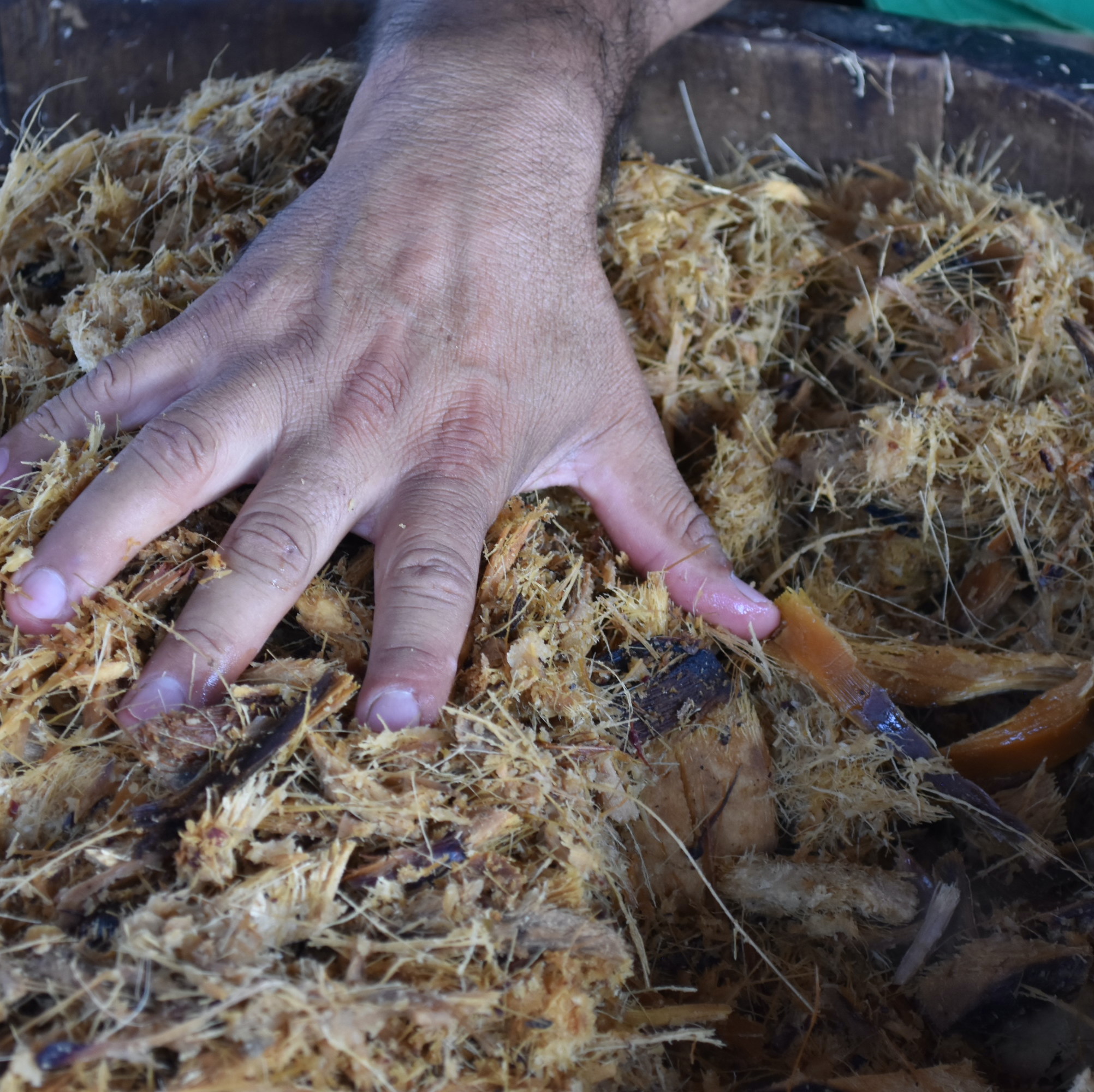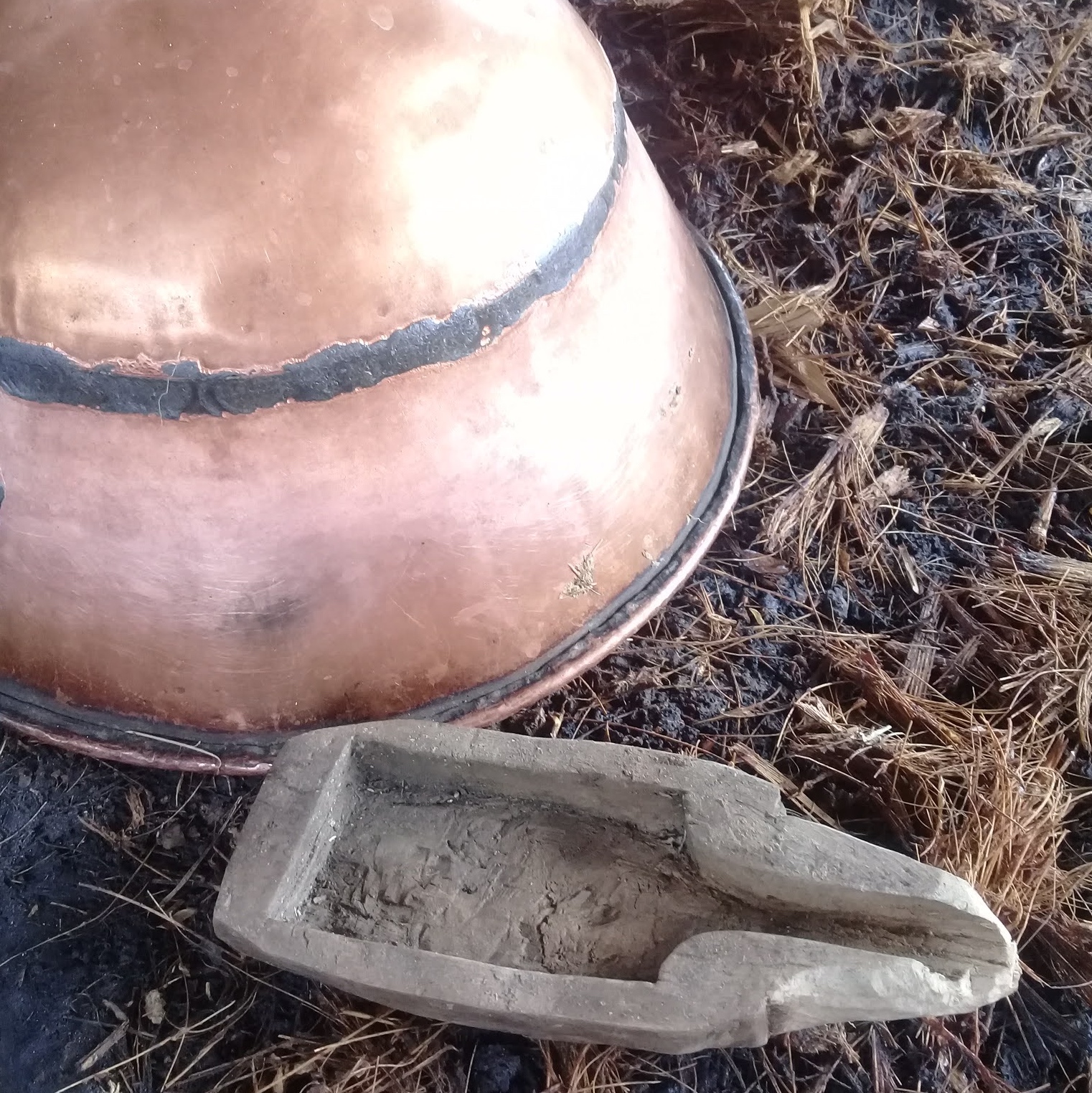From the field, hearth of Mexico Selection & process of production of mezcal
Selection
Every maestro mezcalero chooses his agaves based on their maturity, which also determines sugar content and availability. Processing a young agave is worthless.
Our allies prefere to use their own agaves because they know all the plant’s history: either them or someone in the family would have planted them, at least 8 years before, but could be up to 25! Every plant is a full binnacle of seasons, moons, rains, suns…
Some of the best plants will be selected to produce seeds, so that they will perform their complete reproductive cycle.
Cooking of "piñas" or agave heads
Once the agave has been selected, its cooking will be made in different types of oven: conic underneath the soil, masonry with gas, stone ovens…
Every oven has a particular production technique: sizes are different, and so is their performance. In some cases, more firewood is needed, others are way more efficient. Oak, carob tree and other hard woods are used.
The process of “cooking” lasts between 24 and 72 hours, according to the oven’s size, climatic conditions, and type of agave. The first result is a cooked agave with a very sweet flavor, although many varieties have a sour taste. The plant has lots of fibers.
“Loading” an oven requires agave heads to be chopped into smaller pieces. (4-8 pieces per head), so that they cook evenly. This part is physically very demanding.
Grinding
In order to obtain as much juice from the agave as possible, it is necessary to grind it. This process can be made with a wooden mallet, a machete, a special grinding machine, or a very large stone called “tahona chilena”, which requires to be pulled by a horse, or even an ox, depending on the stone’s weight. Some producers have even added an electric engine to the “tahona”, to avoid the use of animals.
In the clay destillation process, pieces have to be chopped very small, to avoid any damage to the clay still. This is made mainly by hand, and it implies a lot or work. No agave will be sitting for more than 10 days.
Once the grinding process has started, all the production process has to continue until the distillation is over.
Fermenting
Differently to the industrial processing, which employs controlled yeasts for fermentation, in the artisan technique we use natural yeasts that are found in the local environment. This process may take between 7 and 20 days, depending on the season and geographic area.
The cooked and ground product will be poured into oak thubs, then some water will be added to encourage the process and the maestro mezcalero will supervise it all the time, to ensure the perfect moment. The 5 senses, literally, are used: smelling, touching and tasting the product, but also observing and even hearing it. If the agave is left too long to ferment, it might start to rotten.
Normally, thubs are prepared with a day of difference, so that in the right moment, there is enough time to distill all the batch.
Distilling
Precise as a surgery, distilling is some kind of laboratory process where the maestro mezcalero decides the alcoholic content of his batch. In ancestral and artisan made mezcales, the higher the purity of alcohol, the better the product will be.
Distillation is made in copper stills or in more ancient tools, such as clay or wood stills. Some techniques have been traced back 3500 years in Mexico, or found to come from as far as the Philipines.
Without adding any artificial products, the maestro will take you, as you sample your mezcal, through a wonderful journey in time and space: as you taste, you brain will start looking for memories of flavors and scents of your past and combine them with the agave’s own history.
Close your eyes and allow those perfumes to take you back to that trip to an exotic land, or those desserts and fruits that you used to eat as a child, hikes in the forest, smells of rain… An unforgettable experience.
Don’t forget to taste also a blended mezcal, which is the result of years of experience learning how to combine the types of agave to obtain the most particular flavors.
And, which is the best?
We invite you to let yourself capture by the variety: all the agave distillates in our selection come from expert hands. Pick one, two, three, and take them home to taste, alone or with friends.
Be certain that Hector Vazquez, our Curator and ally with more than 25 years of experience, has made his best selection to have an extensive assortment. Of course there are many others worth trying, but if we may suggest, make sure that you buy artisan brands who represent the true mezcal spirit: passion and hard work.
- Brands made and owned by the producer.
- Elaborated by the artisan families
- High purity distillates: at least 45% ABV.
- Prefer formally registered companies, unless you really have access to very small unregistered producers.
At 6 Sentidos, we assure you that your experience will be real, honest and full of quality.
